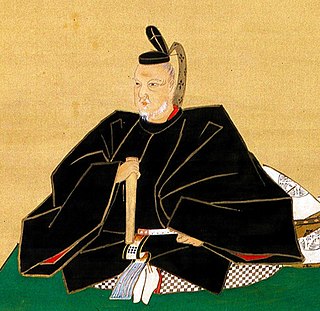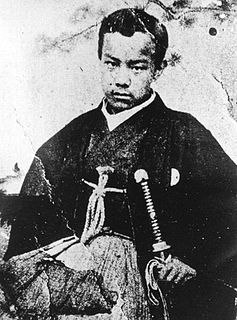 W
WHoshina Masatsune was the 2nd daimyō of Aizu Domain in Mutsu Province, Japan. His courtesy title was Chikuzen-no-kami and Jijū, and his Court rank was Senior Fourth Rank, Lower Grade.
 W
WHoshina Masayuki was a Japanese daimyō of the early Edo period, who was the founder of what became the Matsudaira house of Aizu. He was an important figure in the politics and philosophy of the early Tokugawa shogunate.
 W
WMatsudaira Masachika was an early to mid-Edo period Japanese samurai, and both the 5th and 7th daimyō of Fukui Domain He had several names during his lifetime, and is also credited with changing the spelling of the name of "Fukui" from <福居> to <福井>.
 W
WMatsudaira Tadanao was a Sengoku to early Edo period Japanese samurai, and the 2nd daimyō of Fukui Domain in Echizen Province.
 W
WMatsudaira Harusato was a Japanese daimyō of the mid-Edo period, who ruled the Matsue Domain. He was renowned as a tea master, under the name Matsudaira Fumai .
 W
WMatsudaira Katahiro was the 7th daimyō of Aizu Domain in Mutsu Province, Japan. His courtesy title was Higo-no-kami and Jijū, and subsequently raised to Sakonoe-gon-shōshō and his Court rank was Junior Fourth Rank, Lower Grade.
 W
WMatsudaira Katamori was a samurai who lived in Bakumatsu period and the early to mid Meiji period Japan. He was the 9th daimyō of the Aizu Domain and the Kyoto Shugoshoku. During the Boshin War, he led Aizu Domain against the incipient Meiji government, but was severely defeated at the Battle of Aizu. Katamori's life was spared, and he later became the head kannushi of the Nikkō Tōshō-gū shrine. He, along with his three brothers Matsudaira Sadaaki, Tokugawa Yoshikatsu, and Tokugawa Mochiharu, had highly influential roles during the Meiji restoration and were called the "four Takasu brothers".
 W
WMatsudaira Katanobu was the 5th daimyō of Aizu Domain in Mutsu Province, Japan. His courtesy title was Sankonoe-gon-chū-shō and Jijū, and his Court rank was Senior Fourth Rank, Upper Grade.
 W
WMatsudaira Kataoki was the 6th daimyō of Aizu Domain in southern Mutsu Province, Japan.
 W
WMatsudaira Katasada was the 4th daimyō of Aizu Domain in Mutsu Province, Japan. His courtesy title was Sankonoe-gon-shō-shō and Jijū, and his Court rank was Junior Fourth Rank, Lower Grade.
 W
WMatsudaira Katataka was the 8th daimyō of Aizu Domain in Mutsu Province, Japan. His courtesy title was Sakonoe-gon-chūshō and Jijū, and his Court rank was Senior Fourth Rank, Lower Grade.
 W
WMatsudaira Masakata was the 3rd daimyō of Aizu Domain in Mutsu Province, Japan. His courtesy title was Sankonoe-gon-chū-shō and Jijū, and his Court rank was Senior Fourth Rank, Lower Grade.
 W
WMatsudaira Mitsumichi was an early to mid-Edo period Japanese samurai, and the 4th daimyō of Fukui Domain.
 W
WMatsudaira Mochiaki was a Bakumatsu period daimyō under the Edo period Tokugawa shogunate of Japan. He was the 7th daimyō of Itoigawa Domain in Echigo Province and later the 17th daimyō of Fukui Domain in Echizen Province.
 W
WViscount Matsudaira Nobunori was a Japanese samurai of the Bakumatsu period and the 10th daimyō of Aizu Domain.
 W
WMatsudaira Sadaaki was a Japanese daimyō of the Bakumatsu period, who was the last ruler of the Kuwana Domain. Sadaaki was the adopted heir of Matsudaira Sadamichi, the descendant of Sadatsuna, the third son of Hisamatsu Sadakatsu (1569–1623), who was Tokugawa Ieyasu's brother. His family was known as the Hisamatsu Matsudaira clan. It was to this family that Matsudaira Sadanobu also belonged.
 W
WMatsudaira Sadanori was the 5th daimyō of Kuwana Domain in Ise Province in early Meiji period Japan.
 W
WMatsudaira Sadayasu was a Japanese daimyō of the late Edo period, who ruled the Matsue Domain.
 W
WMatsudaira Tadamasa was an early to mid-Edo period Japanese samurai, and daimyō.
 W
WMatsudaira Yoshinaga , also known as Matsudaira Keiei, or better known as Matsudaira Shungaku (春嶽) was a Japanese daimyō of the Edo period. He was head of the Fukui Domain in Echizen Province. He is counted as one of the "Four Wise Lords of the Bakumatsu period" , along with Date Munenari, Yamauchi Yōdō and Shimazu Nariakira. "Yoshinaga" is his imina and "Shungaku" is his gō.
 W
WTokugawa Tadanaga was a Japanese daimyō of the early Edo period. The son of the second shōgun Tokugawa Hidetada, his elder brother was the third shōgun Tokugawa Iemitsu.
 W
WTokugawa Yorinobu was a Japanese daimyō of the early Edo period.
 W
WYūki Hideyasu was a Japanese samurai who lived during the Azuchi–Momoyama and early Edo periods. He was the daimyō of Fukui Domain in Echizen.